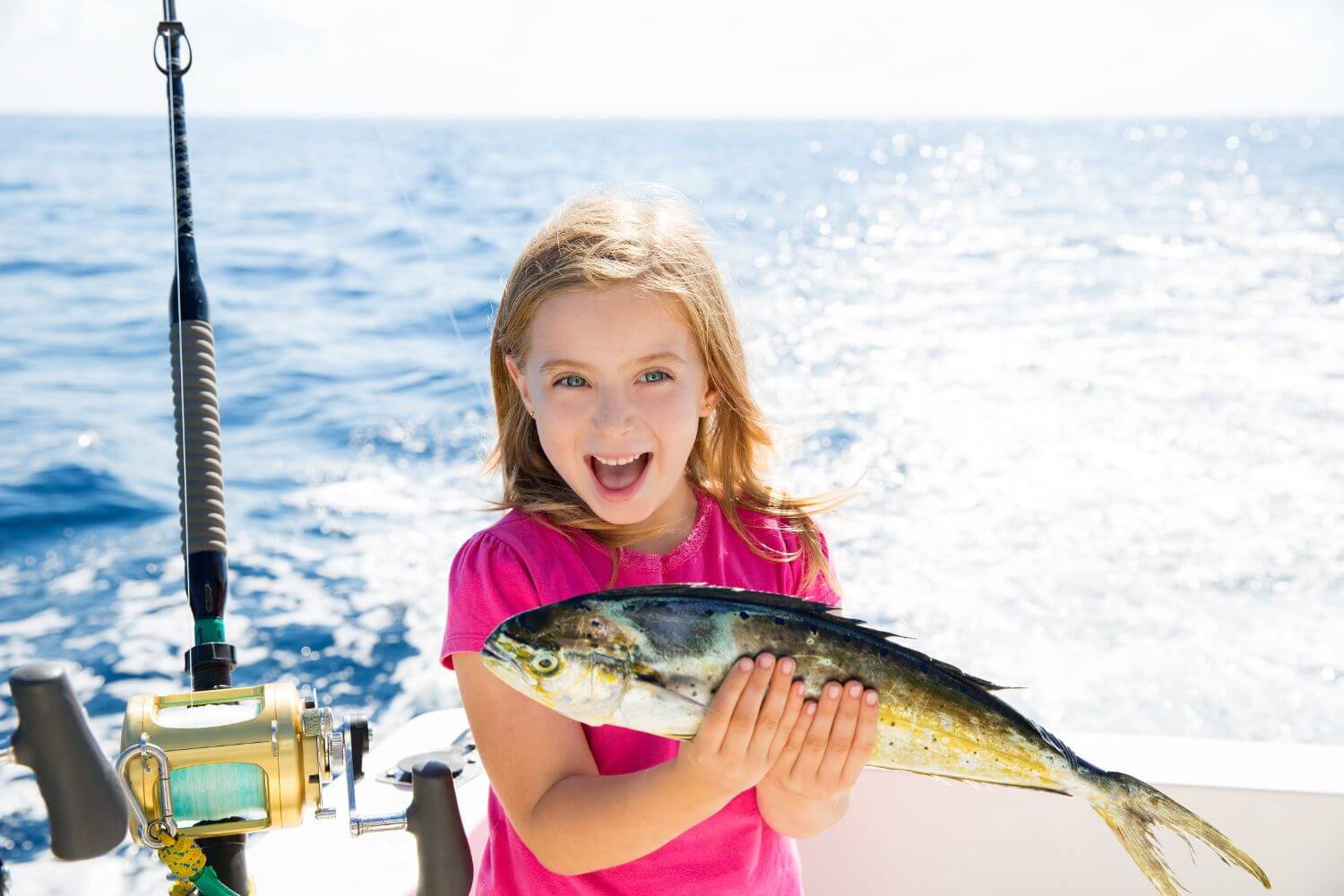Give a child a dinner, and they’ve had one meal…
But teach a child to cast a line, and you’ve sparked a lifetime of outdoor adventures, invaluable learning experiences, and precious memories that will stay with them for decades to come…
Perhaps I’m speaking with some personal bias since I’ve witnessed firsthand how fishing has shaped my life, my sister’s development, and strengthened our entire family’s bond… but it’s difficult to deny the profound effect that a successful fishing trip can have on a young person’s outlook.
Growing up, fishing wasn’t just a hobby in our family – it was our way of life. My mother, father, grandparents, siblings, and extended relatives all participated in this beloved tradition whenever possible.
No matter where we traveled, from summer vacations to weekend getaways, a collection of fishing rods and a well-stocked tackle box always found their way into our vehicle.
I can personally attest to how those early fishing expeditions as a youngster influenced who I am today – from developing a deep appreciation for our waterways, to cultivating an insatiable desire for outdoor experiences, to acquiring unique skills, and even influencing my approach to parenting my own children…
So I’m compelled to share nine compelling reasons why EVERY child should learn to fish… and why we as parents have a responsibility to make regular fishing outings a priority for our kids.
You might be amazed by how other aspects of their lives (such as academic performance, social skills, and overall contentment) flourish at home following an enjoyable day by the lake or ocean…
Here are nine powerful reasons to introduce your children to fishing:
1. Fishing Pulls Kids Away From Screens and Digital Devices
Let’s be honest, unless your family lives completely off-grid (in which case you’re probably not reading this article), your children will inevitably have smartphones, gaming controllers, or tablets in their possession at some point…
To be clear, technology itself isn’t inherently harmful… it only becomes problematic when it transforms into an addiction that consumes too much of their attention.
Unfortunately, many of today’s youth are excessively dependent on constant connectivity. Since this generation is the first in history to grow up surrounded by 24/7 access to smartphones and the internet, researchers haven’t yet determined the full extent of how this exposure will affect them in adulthood.
But regardless of future consequences, the present impact is evident with childhood obesity rates in America reaching unprecedented levels.
So why not exchange their digital devices for fishing rods?
The thrill of feeling a fish strike your line delivers a sensation that no technology can replicate (at least not yet), and the experience of “disconnecting” from electronics to “connect” with nature will greatly benefit their well-being.
2. Fishing Educates Kids About Food Sources

Many children today have little understanding of where their meals actually originate.
What better education about food sources could you provide than showing them firsthand where fish come from?
Even if you practice catch-and-release, simply discussing with your children how fish are prepared and consumed as nourishment gives them valuable knowledge that puts them ahead of their peers.
3. Fishing Imparts Essential Survival Skills
Consider this question:
Which child do you believe will be more well-rounded and capable of thriving in various situations?
The one who excels at video games compared to their friends The one who can tie functional knots, catch fish, clean their catch, and navigate natural environments
I think we agree on the answer.
Fishing encompasses numerous survival skills that will benefit your children throughout their lives.
Don’t allow them to become adults who would struggle to feed themselves if internet access disappeared for a week…
4. Fishing Cultivates Environmental Awareness and Appreciation
My family firmly believes that one of the greatest threats to recreational fishing is failing to pass these traditions to the next generation.
It begins with introducing them to outdoor activities, teaching them about nature and conservation principles, and helping them discover the wonders of natural environments.
Far too many children aren’t experiencing enough time in nature, and certainly not enough are learning to fish.
Take your children outdoors, place fishing rods in their hands, and watch as they develop into young people who value and protect our natural resources.
5. Fishing Develops Children’s Patience
With thousands of television channels and unlimited entertainment options online, children are conditioned to expect immediate gratification.
Our fast-paced world and instant access to virtually anything undermines the development of patience.
In contrast, introducing kids to fishing teaches them that worthwhile rewards often require waiting and persistence.
In today’s environment, children who possess patience will undoubtedly excel beyond peers who haven’t learned this vital trait.
Take them lakeside with a fishing rod for a few hours and observe the remarkable transformation in their demeanor.
6. Fishing Fosters Genuine Face-to-Face Communication
Researchers studying technology’s effects on youth development are particularly concerned about impacts on communication abilities.
It doesn’t require scientific expertise to recognize the problem – simply observe how today’s young people interact with one another.
Many barely exchange words because they’re fixated on their phones. Shockingly, numerous adolescents admit they prefer texting someone visible nearby rather than walking over for a conversation.
TROUBLING!
Fishing, however, creates opportunities for interaction, conversation, and setting electronics aside.
I can’t imagine a better setting for meaningful discussions with my children than during a fishing outing.
Can you?
7. Fishing Brings Your Entire Family Outdoors Together
Don’t just send your children outside alone – involve the whole family in the experience.
Fishing stands out as an exceptional activity because virtually anyone can participate regardless of age.
Nothing strengthens family connections like sharing the excitement of catching fish while enjoying time on or near the water.
Even if certain children aren’t enthusiastic about fishing itself, countless alternative activities await them – collecting tadpoles or minnows, observing wildlife, gathering seashells along the shore, assisting with a landing net, or simply breathing fresh air.
8. Fishing Creates Meaningful, Lasting Memories
As children mature into adults, they typically won’t remember specific video games they played.
They probably won’t recall most holiday gifts you gave them (except for a few truly special ones).
But what adults consistently remember with remarkable clarity are fishing excursions with parents, grandparents, and friends.
Fishing creates meaningful memories, and if you want to establish a legacy of treasured experiences with your loved ones, consider planning a fishing trip.
It might become the greatest gift you ever give them.
9. Fishing Keeps Children Out of Trouble!
Speaking from experience, fishing kept me and my siblings out of numerous problematic situations growing up.
While many neighborhood friends experimented with cigarettes and alcohol for the first time, we were focused on landing impressive catches.
Our passion for fishing even motivated us to go to bed early so we could wake before dawn to be first on the water.
In today’s world, where children experiment with adult behaviors prematurely, there’s no better solution than developing their enthusiasm for fishing instead of potentially harmful activities.
So nurture their interest in fishing!
You’ll appreciate the decision (especially during their teenage years).

